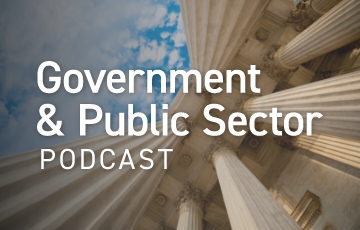Author: Gabriela Payne, Senior Manager Accounting Advisory
You Don’t Think Sustainability Impacts Small Companies? Think Again.
For the last decade Environmental, Social, Governance (ESG) has echoed across board rooms, conferences, investor calls and podcasts for good reasons. An effectively managed and maintained sustainability strategy can lead to long-term value for investors, whether small proprietorships, private equity firms, or stockholders of large national or international publicly traded companies. ESG factors work in tandem to create a sustainable business environment, and its integration and reporting is more relevant than you may think.
Unfortunately, ESG has become a buzz word that blurs material financial impact. Fortunately, many stakeholders have worked together to align existing frameworks into a common language that balances ESG factors with financial impact and return on investment. This may result in ESG reporting that is not obscured by financially immaterial factors, so that readers can gain valuable insights into factors that affect both the financial and natural resource economy with focus on what matters for stakeholders.
Evolving frameworks that meet the needs of investors and align with regulatory policies and ESG reporting requirements are emerging into a condensed set of useful disclosures designed to provide financial and sustainability data that is comparable, transparent and consistent for effective decision-making. Although the standards are not currently a jurisdictional requirement, high-level management and boards of directors should be paying attention to these, as they help navigate through the competing challenges and opportunities for managing natural resources with long-term investment value.
Why Should Small Businesses Begin Their ESG Journey Now?
It is important for a small business to evaluate the ESG standards even when there may not be a legal mandate in your local jurisdiction. Understanding the impacts ESG can have on your operations, vendors, suppliers and capital may result in better performance and long-term success.
Value Chain
In today’s global economy, the goods and services you provide are likely somewhere in the value chain of an enterprise that is either required by a jurisdiction in which it operates or has voluntarily committed to disclose, at a minimum, its carbon footprint. If your company’s goods and services are sold upstream anywhere in the value chain to a global company that is required to disclose or has set its targets to reduce emissions aligned with the Paris Agreement, you are facing pressure to provide emissions data and participate in decarbonization plans for continued business relationships. For example, Amazon has recently stated its plans to require suppliers to report emissions and set its own decarbonization goals. This will have a trickledown effect over time and reach small businesses.
Operating Disruptions
A company could be operating in an environment where natural resources are being depleted at a faster rate than when operations were first established. For instance, Blanco, Texas experienced severe drought conditions combined with a pipe break, which resulted in an emergency water shortage that forced the city to suspend service to industrial users, including a large brewing company, the city’s largest employer. The brewery’s significant capex investment was at material risk with the water shortage. Moreover, this water emergency had a trickledown effect on all businesses in the area.
While the region is known to have extreme weather conditions that could end the drought with even a single rain event, an effective ESG strategy would enable management to anticipate and protect against losses from events like this one. Relocation or emergency interconnects with other area water providers could potentially mitigate risks. Companies must consider site selection based on operating needs and tax benefits.
Capital
The markets dictate where the money flows. Like the value chain necessities for climate-related disclosures, financial institutions are tracking investments. Even if a service company does not have a need to supply information upstream to its buyers, when it comes time to finance or refinance for working capital, financial institutions are requesting ESG data to comply with their own targets and policies and in some cases, legal mandates. Private equity firms are also taking note of sustainability strategies that provide value and security in their investment strategies.
We Already Have an ESG Report, What Should We Do?
Given the ongoing changes and aggregations of frameworks and standards, it is important to seek professional guidance to determine what frameworks apply to your company. Professional guidance can help you determine what factors are most relevant for your company to approach your ESG journey in the most cost-effective and efficient manner possible. Every industry has different challenges and opportunities.
How Can Cherry Bekaert Help Guide Your Small Business on a Sustainability Journey?
- Assist with value chain data surveys and other requirements.
- Develop ESG readiness check and roadmap.
- Offer industry-specific guidance for determination of relevant factors to analyze.
- Determine reporting requirements and assist in identification of data gaps.
- Integrate necessary data frameworks into a company’s reporting processes.
- Ensure data can be verified for assurance purposes.
- Consult on business-specific risks and opportunities.
- Consult tax advisors to identify credits for sustainable energy projects.
- Leverage experienced site selection specialists.
While finance and accounting departments may be short-staffed in your current talent pool, Cherry Bekaert’s Accounting Advisory practice has an experienced professional for every subject matter and is ready to deploy solutions for your organization. We have finance and accounting advisors who can assist you in navigating the different standards and requirements, including ESG-specific accounting resources and technology solutions ready to help with related reporting and compliance needs. Save on recurring expenses with Cherry Bekaert’s forward-looking services for value creation, process improvement, digital acceleration, and ESG assessments and reporting. Regardless of your need or timeline, you do not need to build a new team; we have solutions to meet you where you are.



